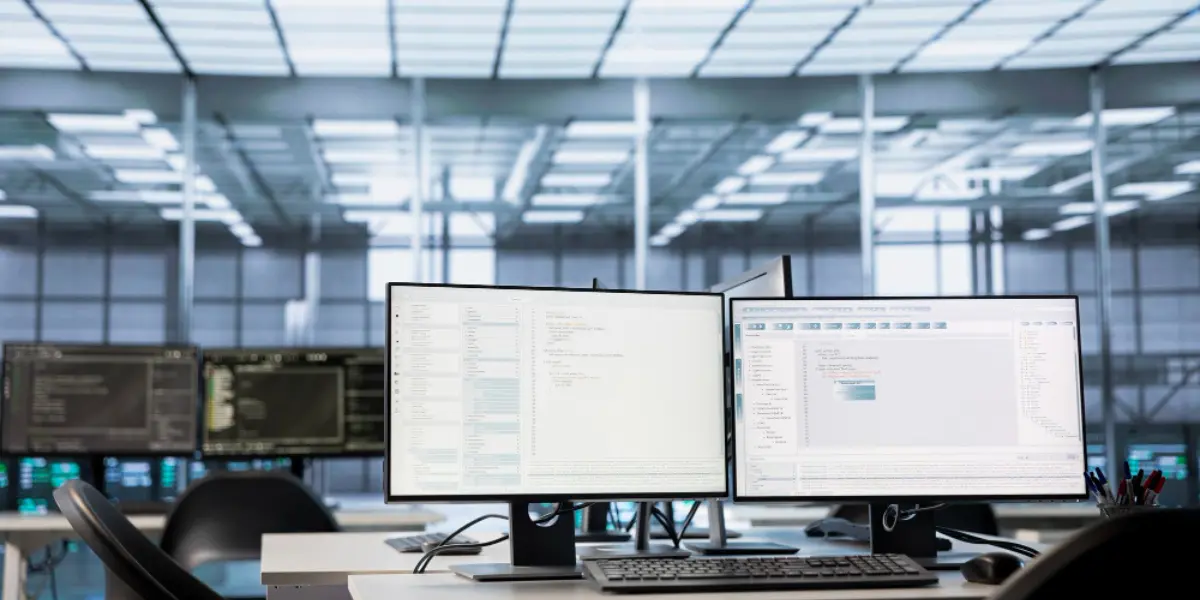Key points to remember about Datarooms
- Data rooms are secure online repositories used to share confidential information during due diligence.
- They enable structured, controlled, and auditable collaboration among multiple stakeholders.
- A well-designed data room enhances trust, accelerates decision-making, and ensures compliance with confidentiality standards.
- Essential features include access control, watermarking, audit trails, encryption, and advanced search capabilities.
What is a data room?
A data room is a secure online repository designed to store and share confidential documents with multiple stakeholders during a due diligence process. It replaces traditional physical datarooms with a digital, encrypted, and traceable environment, where sensitive materials such as financial statements, strategy documentation, legal information, roadmaps, organisational charts, internal policies, infrastructure description, etc. can be safely exchanged.
In the context of tech due diligence, a data room provides a structured framework for investors, auditors, tech teams and legal teams to review all critical aspects of a company’s technology stack, ensuring the process is efficient, transparent, and compliant with confidentiality obligations.
Why datarooms matter in Tech Due Diligence
During a tech due diligence, multiple parties, including investors, technical experts, and legal advisors, need to access a company’s most sensitive materials. This often includes the company’s source code, technical architecture, and product roadmap, which together represent the core of its intellectual property and strategic value. These assets are not only central to understanding the company’s current capabilities but also critical to evaluating future growth potential, competitive advantage, and technological sustainability.
Protecting these assets is essential: any unauthorised disclosure could compromise competitive positioning, intellectual property rights, or investor confidence. A professional data room ensures that:
- Information remains protected through encryption and controlled access.
- The process is auditable, providing a clear record of who accessed what and when. This capability is even more effective when every action is precisely timestamped, creating a reliable audit trail that reinforces accountability and strengthens the overall governance of the due diligence process.
- Collaboration is streamlined, as all parties can work from a single, structured environment.
Ultimately, an effective data room not only protects the target company’s confidential data but also accelerates the due diligence process, reducing friction and reinforcing trust between all parties involved.
Key features of an effective data room
To meet the demands of a tech due diligence process, a high-quality data room should include the following features:
- Role-based access control: the ability to assign different access levels to users depending on their role (investor, auditor, legal counsel, etc.), ensuring each participant sees only the information relevant to them.
- Individual login and access tracking: each user should have a unique, secure login, with activity logs capturing all document interactions for full transparency.
- Confidentiality standards matching those of professional applications: the platform must comply with high security and data protection standards (such as ISO 27001, GDPR, or equivalent).
- Audit trails of user actions: detailed logs of who accessed, downloaded, or modified documents, providing full traceability.
- Watermarking: dynamic watermarking helps prevent document misuse or unauthorised distribution.
- Encrypted archiving: all stored data should be encrypted both in transit and at rest, ensuring long-term protection.
- Structured folder system with indexing: a logical, well-organised file hierarchy makes navigation intuitive, helping reviewers locate critical information quickly.
- Search functionality via keywords or metadata: advanced search tools enable users to find documents instantly, even within large datasets.
- White labelling and branding options: the ability to customise the interface with the company’s logo and visual identity enhances professionalism and trust.
Building confidence through security and structure
For private equity investors, a data room is the central tool for managing high-value technical and strategic information during due diligence. It allows investors to securely review critical assets while maintaining full control over access and visibility. In cross-border transactions, where regulatory frameworks and IP protections vary by jurisdiction, a well-structured data room ensures consistent confidentiality standards, auditability, and compliance, mitigating risk while enabling investors to evaluate the company’s technological capabilities and strategic potential with precision.
A robust data room introduces a critical layer of governance and protection, enabling the controlled sharing of core assets with granular access controls, encryption, and full auditability. Data rooms support secure access to sensitive materials, giving investors the transparency needed to assess technology assets without increasing the risk of information leakage.
Disclaimer
The opinions, presentations, figures and estimates set forth on the website including in the blog are for informational purposes only and should not be construed as legal advice. For legal advice you should contact a legal professional in your jurisdiction.
The use of any content on this website, including in this blog, for any commercial purposes, including resale, is prohibited, unless permission is first obtained from Vaultinum. Request for permission should state the purpose and the extent of the reproduction. For non-commercial purposes, all material in this publication may be freely quoted or reprinted, but acknowledgement is required, together with a link to this website.

